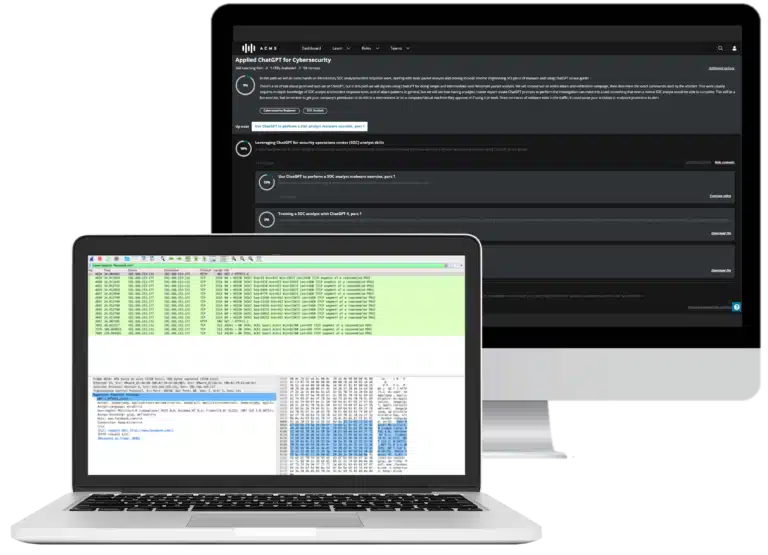Top 5 security engineer resume tips
The role of cybersecurity engineer
The cybersecurity engineer role has been around for decades and is constantly evolving. You'll want to keep your resume current, clear and on-point to stay competitive. These five tips will help you showcase your skills and get an interview.

ChatGPT: Self-paced technical training
1. Highlight relevant skills with caution
Your resume will, of course, need to be highly technical and personal as it will need to relate your skills to the roles you obtained them. It's best to highlight relevant skills per your previous role because this allows a recruiter or hiring manager to assess how long and at what level you used your skills.
Next, use security caution before your resume gets too security tool-heavy. These days, public forums like LinkedIn and many online recruiting sites are scraped by malicious actors to discover what security tools their targets potentially use and at whom to direct a spearphishing attack.
According to Michelle Rafter at Talent Economy, these actors even go as far as staging fake interviews to get their information. This means that sharing too many details about a previous employer's security systems could create a security risk to that organization and reflect badly on you when a prospective employer performs a background check.
2. Vendor and industry certificates vs. academic degrees
There is much discussion about cybersecurity certifications and the place they should fill within the IT security job market. Opinions from relevant experts can range from "completely useless" to "better than academic degrees."
The most reasonable view, supported by many universities and training /employment institutions, is that each has a place. A formal degree will have a longer lifespan and provide a broader knowledge base, which could lead to faster promotions and higher salaries. However, you could also achieve this through hard work and industry certifications. The takeaway here is that they each deserve equal space in the resume.
Something that also deserves adequate space within your resume is vendor certifications. Especially with the move to cloud platforms, vendor certification programs such as the Microsoft Certified Azure Security Engineer and the AWS Certified Security Specialty could be exactly what a potential employer is looking for. Cloud experience and training are particular to the relevant cloud platform, so highlight your certifications that apply directly to the role of your choice.
3. Highlight successful projects and outcomes
A great way to highlight previous achievements and present non-technical experience is to list significant projects you worked on under previous roles. This will provide an opportunity to show management, budgeting, technical writing and project management skills.
If you have worked on projects where the result was an improvement or tightening of your organization's security practices, mention it in your resume. Have you ever taken the lead on a security-related project that was a success for your organization? If so, mention it because referring to past projects you have successfully led is resume gold.
Also, provide details about project outcomes, such as "achieved successful deployment within budget and deadline," where possible.
4. Don't overlook your soft skills
A vital and often overlooked area of your skills that deserves a spot on your resume is your soft skills. Soft skills range from small, interpersonal communication, where you can deliver technical information in a way that is both accessible and friendly, to successfully leading a large team of individuals with differing levels of technical understanding and different personalities.
If you have yet to lead a team as a security engineer but have guided your colleagues in some way, this would be very apropos for your resume and may help you land your chosen role.
5. Open-source and community work
You will be expected to have at least some coding knowledge as a security engineer. Whether it's basic Python or expert-level C+, some solutions will require integration or customization, especially when so much emphasis is placed on automation and Security Orchestration, Automation and Response (SOAR) tools.
A great example of a way to showcase your skills is to list community work and owned public code repositories on platforms such as GitHub or SourceForge. Of course, ensure the code you refer to is accessible, free from bugs and represents the highest skill level.

ChatGPT: Self-paced technical training
The best security engineer resume tips
Although there is always time to write or update your resume, within the fast-changing cybersecurity sector, it's a good idea to make sure your resume is reasonably updated and ready to be sent out when that perfect new role comes by. Last-minute, rushed work can result in a sloppy and messy resume, which might lead to missing out on a great opportunity.
Following the tips in this article should help you craft a winning resume.
Sources
- Hackers Want Your People Data. Here's How to Stop Them., Talent Economy
- SOAR (Security Orchestration, Automation and Response), TechTarget
- IT Certifications vs. Experience vs. Degree, ITCareerFinder


